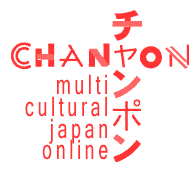2003年04月18日 金曜日
Typical Japanese Entertainment
by Jane Pinckard
Expats in Japan
Anyone who's walked down a street in almost any town in Japan has heard them: the cheerful chimes and jingles of the pachinko parlor. They are such a feature of Japanese urban life that I cannot think of Tokyo without also remembering the lights and sounds of the pinball-like machines. Even in rural areas, there is always at least one huge pachinko building (often fronted by a crowded parking lot).
The New York Times has an article today about entrepreneur Chang-Woo Han, an ethnic Korean and owner of the largest pachinko chain in the country, Maruhan. It turns out that 70% of pachinko owners are Korean - a legacy of post-war job opportunities available to disadvantaged minorities. Now they are part of an industry which is one of the few still lucrative in the flagging Japanese economy. Will their economic status help propel political reform?
I have a nostalgic appreciation for the pachinko parlours; but my mother and my aunts and uncles detest them. "Irashii", they say, and lament the fact that rural landscapes are increasingly peppered with bland tall building flashing gaudy neon signs. To them, pachinko is just short of utter depravity. I don't think in their case the feelings extend to the mostly-Korean owners of pachinko parlours; but it will be difficult to change long-held attitudes about moral turpitude and ethnicity in Japan. Still, Japanese society has a long history of allowing space for "red light" activities peaceably located within cities. To the West, this may look like hypocrisy; it may be just practicality.
Posted by Jane Pinckard at 2003年04月18日 02:21

Comments
I saw a lot of pachinko parlors when I was in Japan. And I was positively stunned in Gifu-ken when I saw an otherwise quiet non-descript area dotted with farmhouses and fields stuck with a giant flashing blinking box and an absolutely full parking lot! This article has some amazing statistics - half of all leisure spending goes to Pachinko? It earns more money than Japan's top five carmakers <i>combined</i>? Whew. On a side note, I wonder what the interaction is between videogames and pachinko?
Your relatives lament pachinko, and I was sad in Japan's farm country to see that the most popular out-of-home evening activity seemed to be money-flushing. But pachinko has obviously been a way for some people to become empowered, feeding human desire to be entertained, to have a chance to win. I wonder if the Korean community in Japan has had secondary benefits from their pachinko wealth - like Native Americans in the United States, some of whom have used funds to build community infrastructure.
Japanese people seem to love Pachiko, Pachi-Slot (pronounced Pachi Su-Lo, Pachinko Slot machines), and GameSen (game centers or arcades). I wonder why?
I've recently moved here and noticed the "Medal Games" and multiplayer games w/ cards at the GameSen's. Alot of the Medal Games look/act exactly like Vegas video Poker games. The multiplayer games w/ cards look really fun, very Otaku. There are vending machines next to the multiplayer game area that sell the cards. I haven't tried them yet, but hopefully soon.
I've lived in japan all my life, and I'll tell you that absolutely NO ONE plays pachinko. All our money goes into rice.